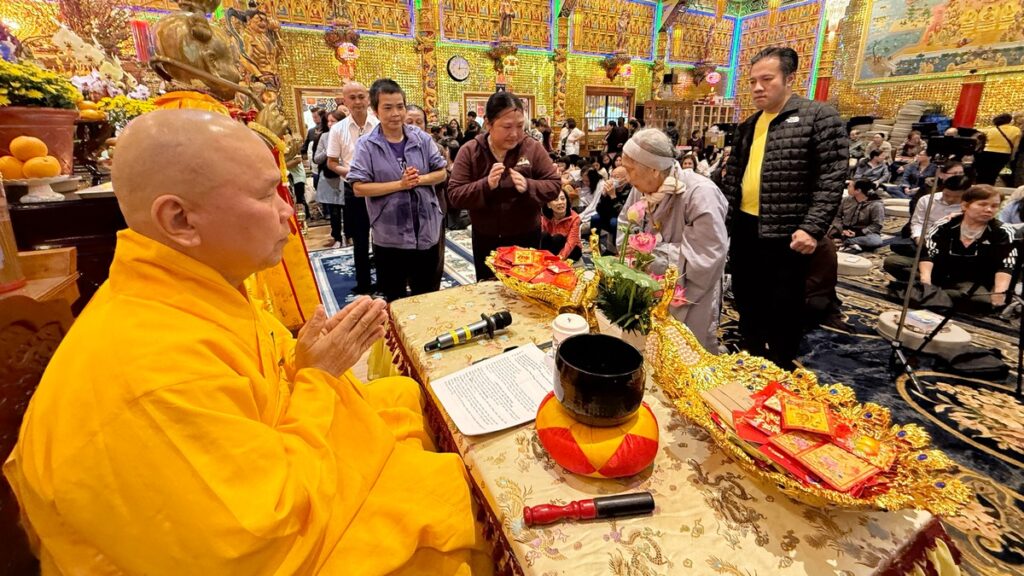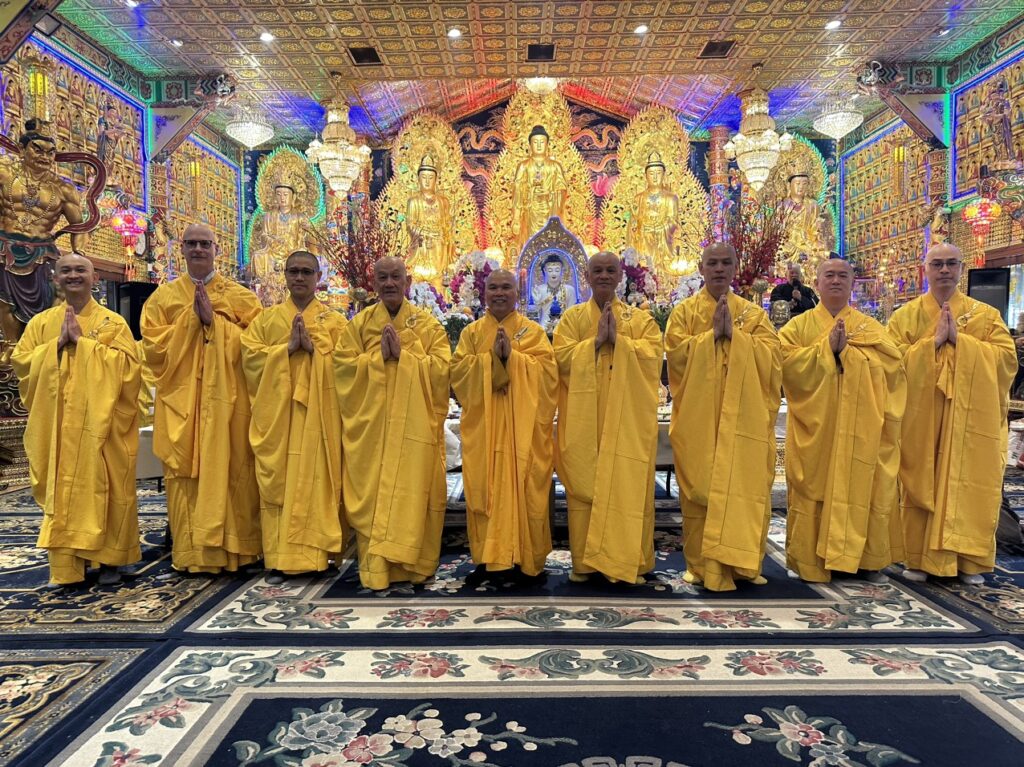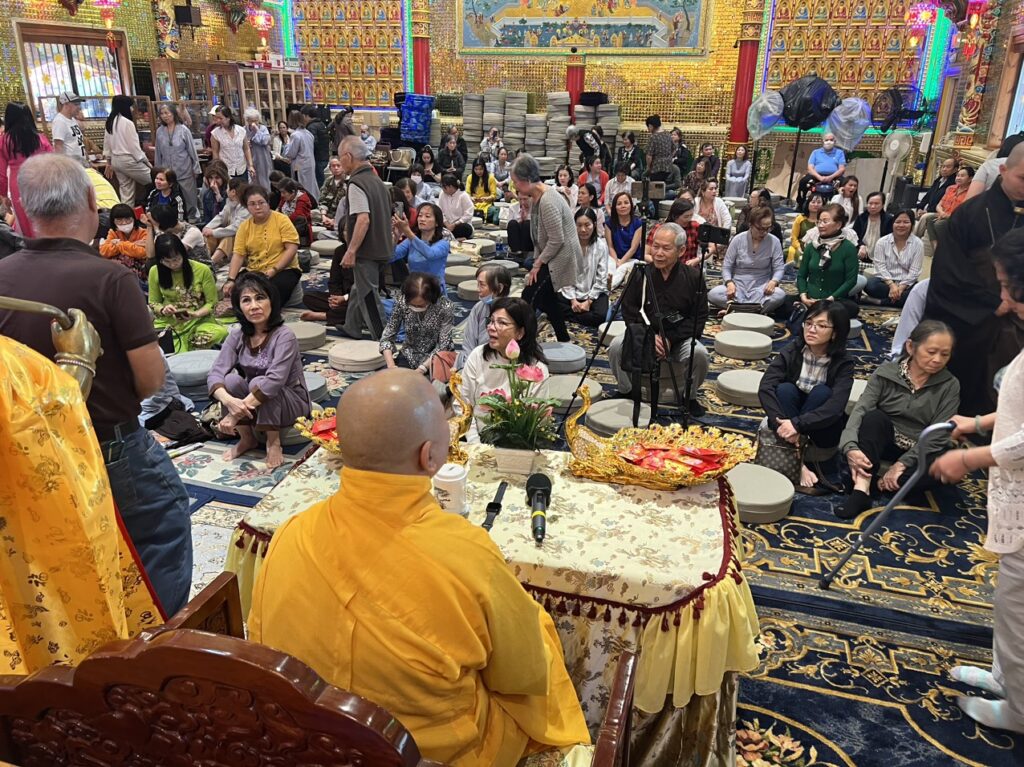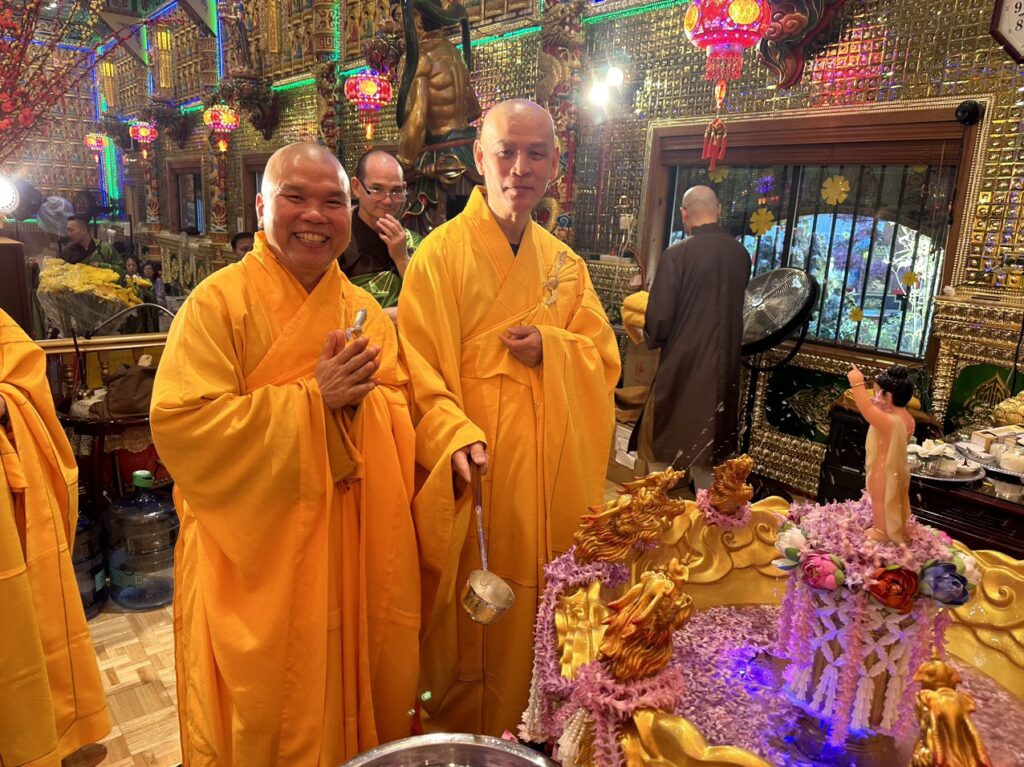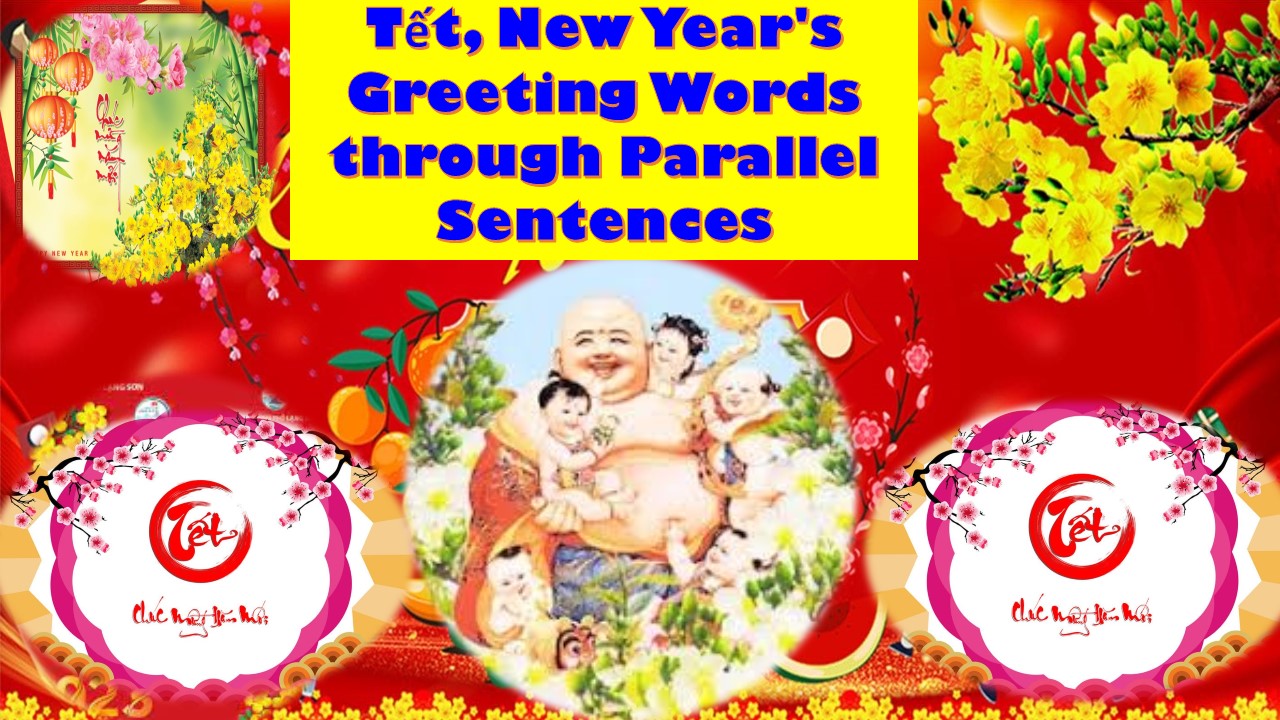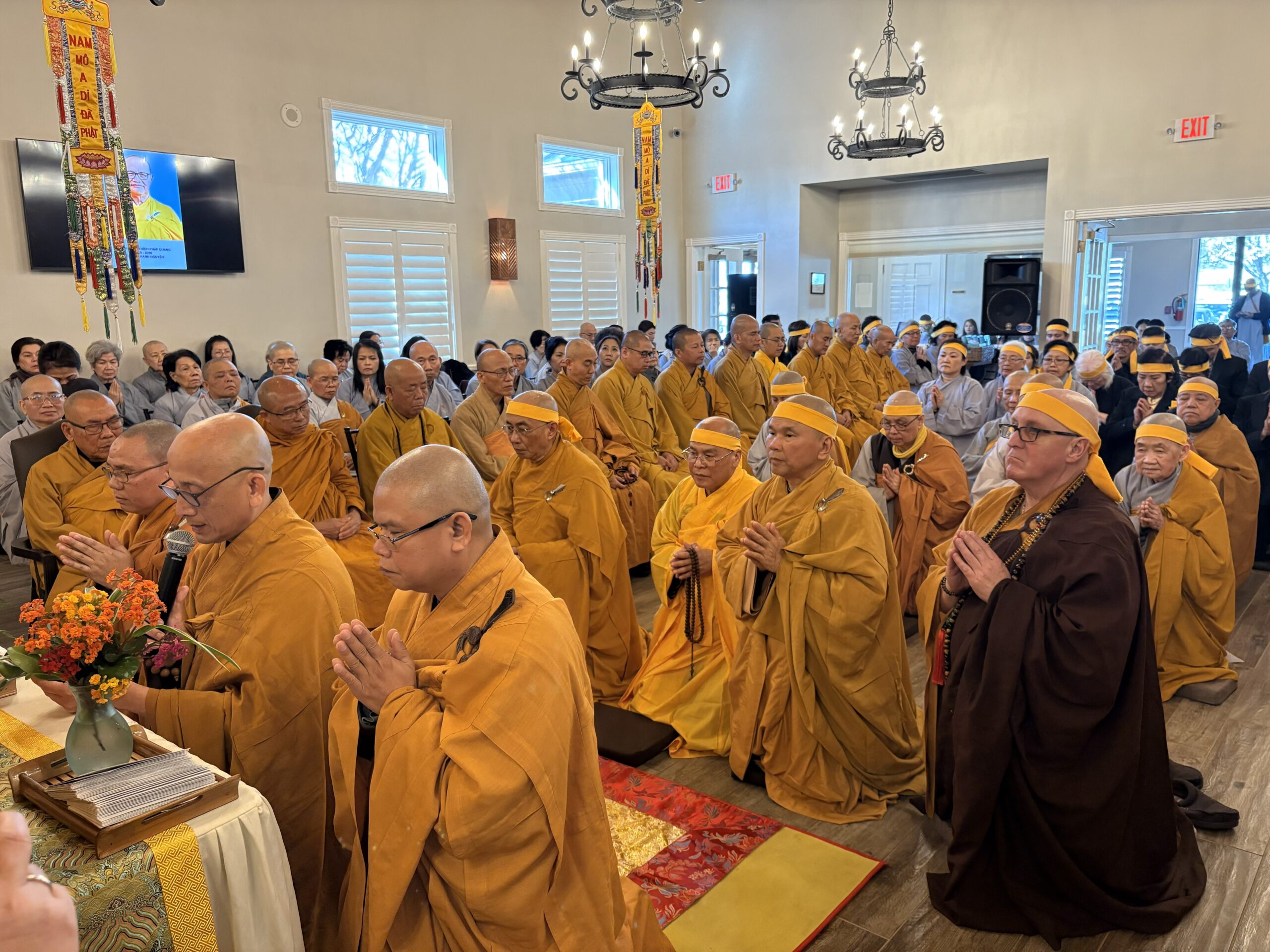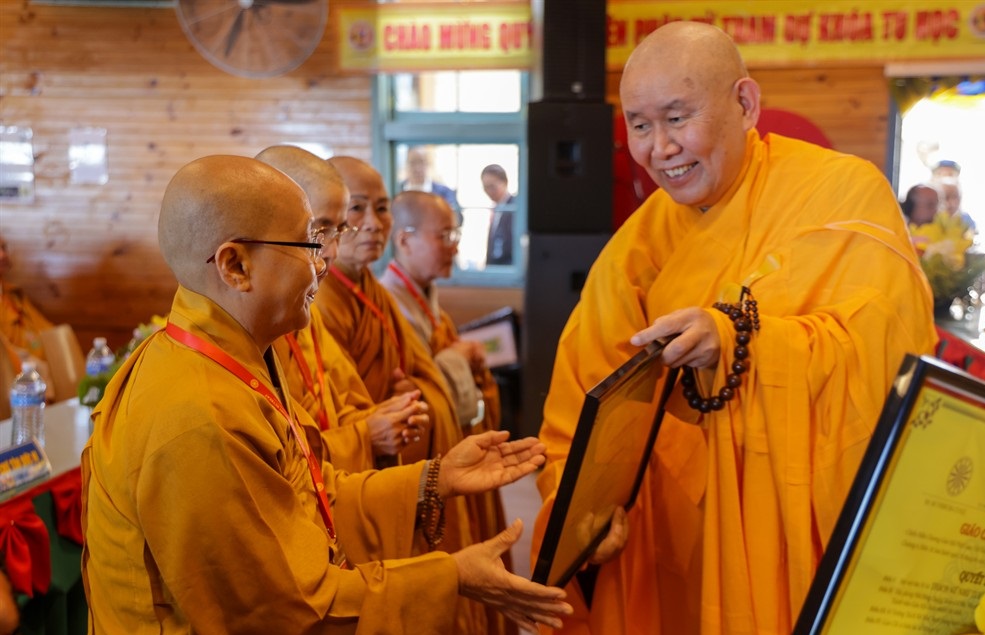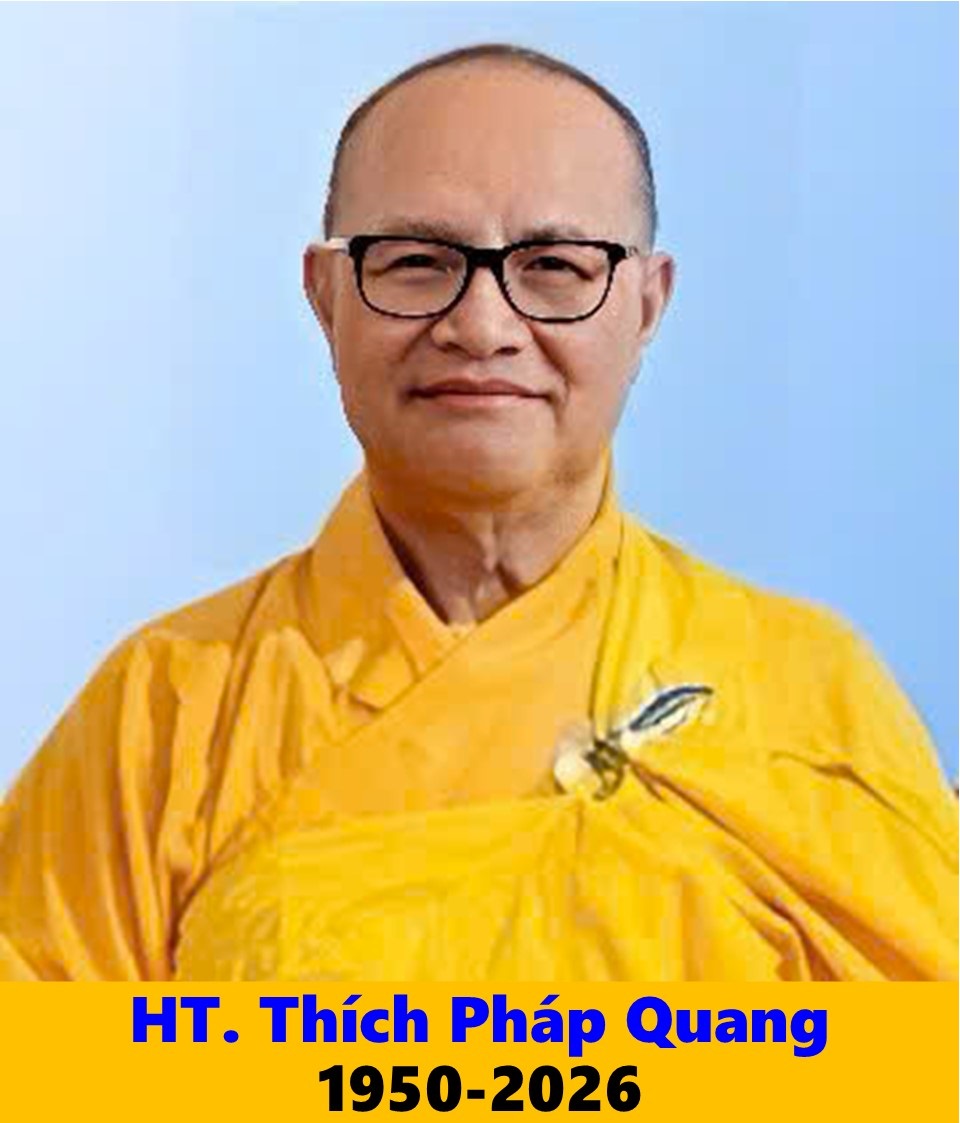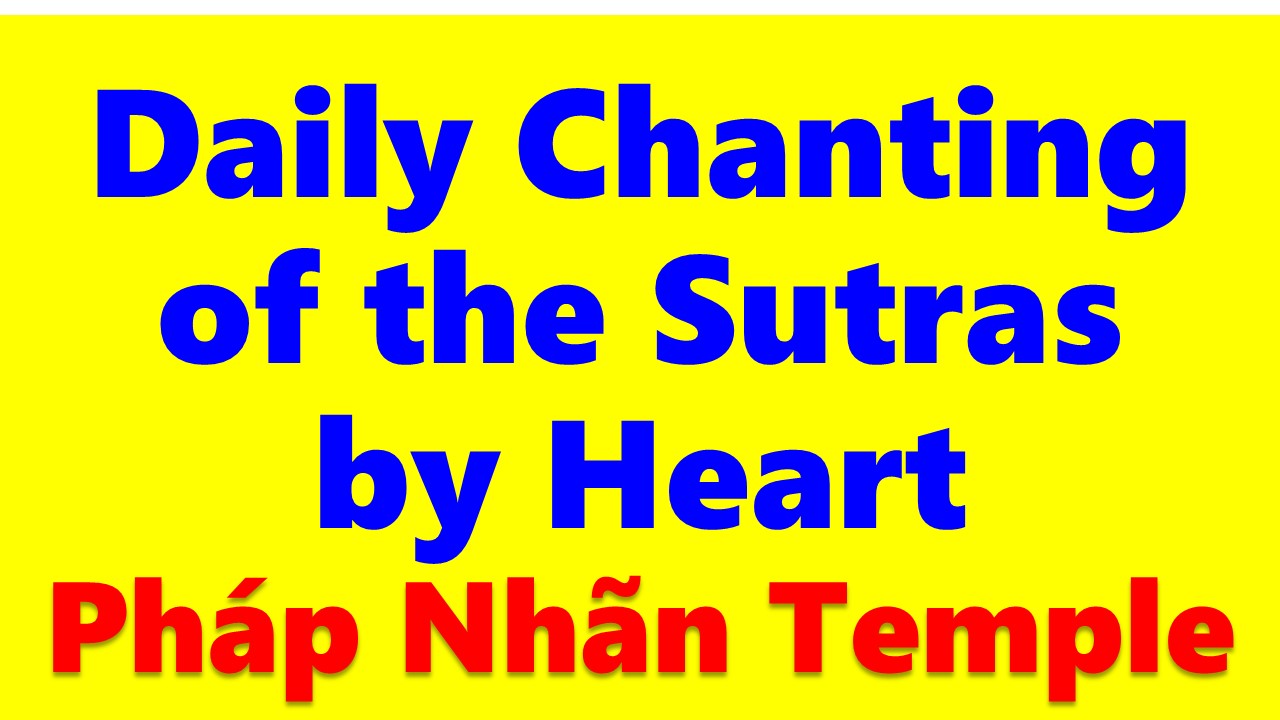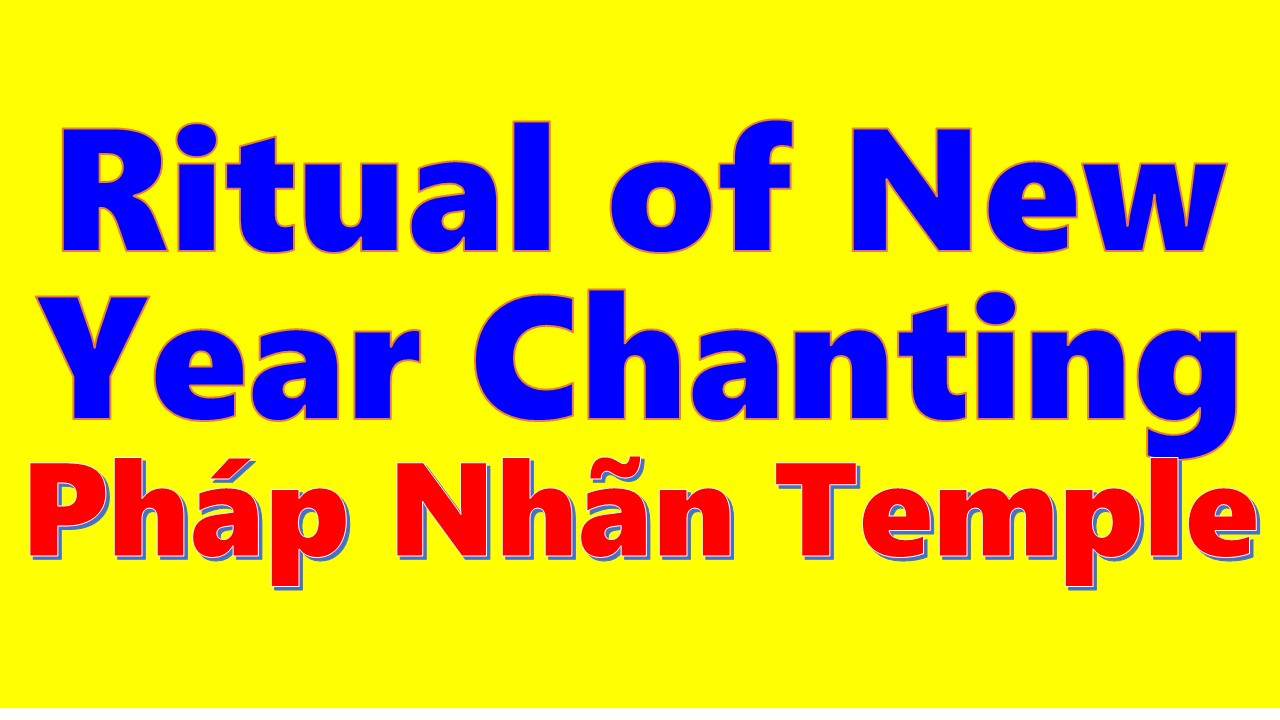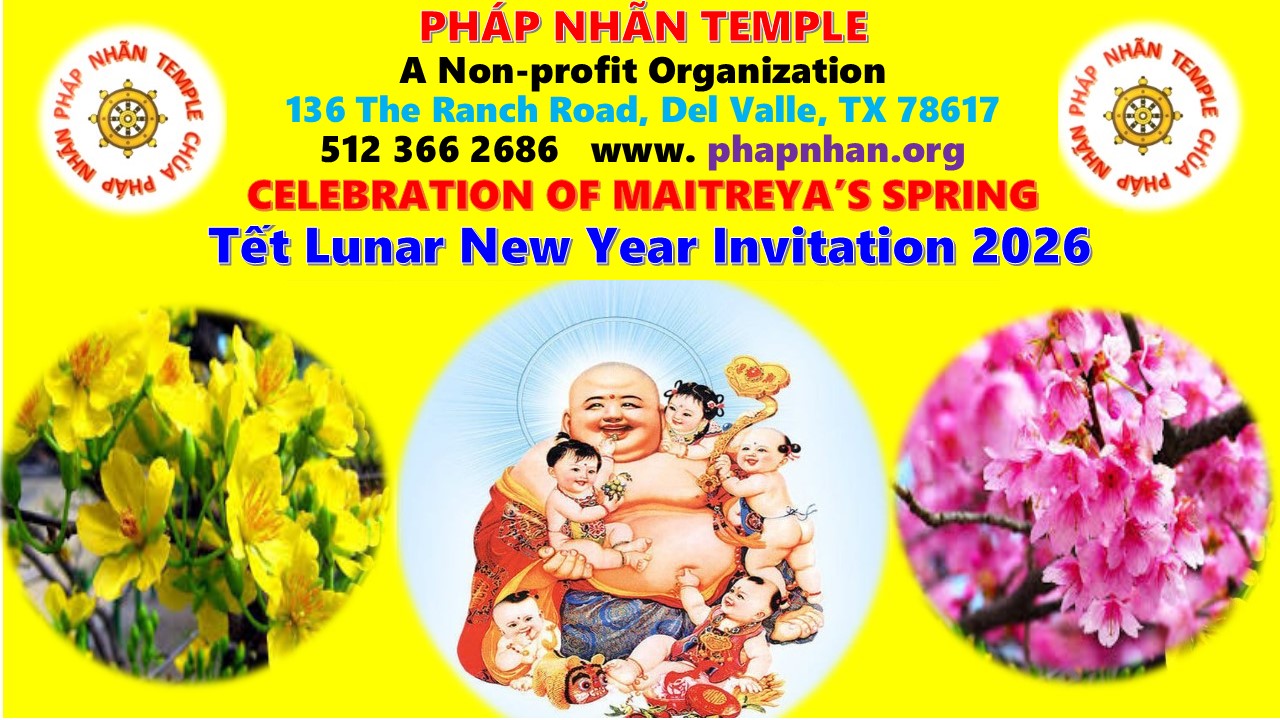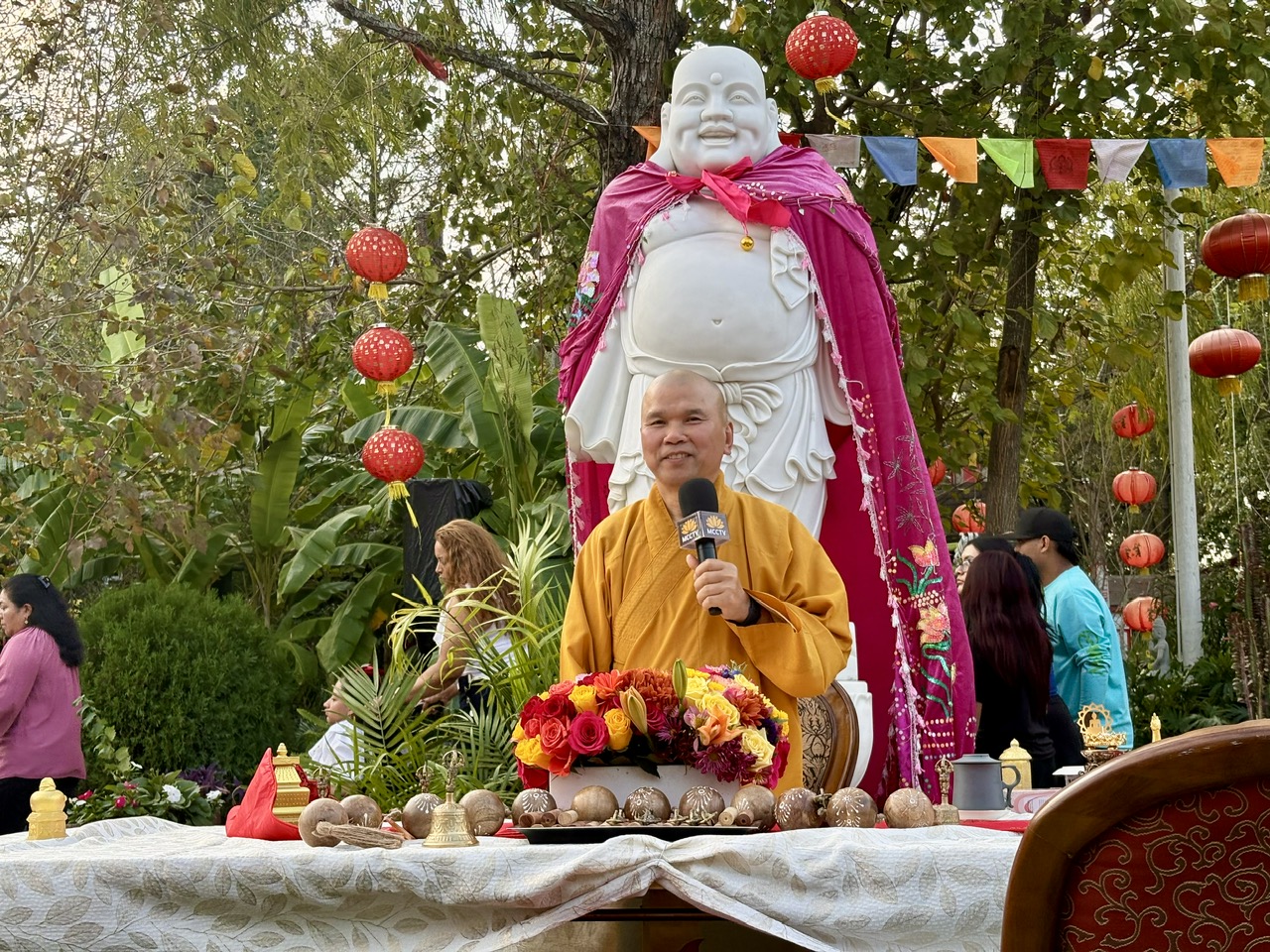
THE “WORLD-ENTERING” MEANING OF KṢITIGARBHA BODHISATTVA
Hard is it to be a human being
Hard is it to meet the Tathagata
Hard is it to hear the wonderful Dharma
Hard is It to associate with the Sangha
Wherever we study, understand, practice, and apply the Buddha Dharma in our daily lives, there we will certainly attain peace and joy. (Dhammapada, Verse 193)
In the Mahayana Buddhist tradition, Ksitigarbha Bodhisattva is a very popular and famous figure in Vietnam, China, Japan, Korea, Tibet, etc.
I. Title of Bodhisattva Ksitigarbha
First, we would like to learn and find out the two phrases Bodhisattva Ksitigarbha.
Bodhisattva in Sanskrit is Bodhisattva; Bodhi means awakened and enlightened. Sattva means a person who is awakened and enlightened. We are beings who are awakening and enlightening.
Kṣiti means earth, steadfastness, solidity, sustainability, firmness, has the ability to nurture and embrace all living beings. Store means treasure, the boundless wisdom, boundless merit, and boundless vows of Bodhisattva.
Garbha (गर्भः): means containment, womb, fetus, inner treasure, deep potential, embrace, tolerance, universal, etc.
So, Kṣitigarbha means “Treasure of the earth, treasure of the mind, symbolizing endurance, perseverance, tolerance, embracing, universal, all-encompassing, infinitely accommodating like mother earth.
Kṣitigarbha is not only the proper name of a Bodhisattva, but also a symbol of: boundless compassion, infinite patience, infinite tolerance, and profound wisdom, capable of containing and saving all sentient beings.
The earth symbolizes the mind; the treasury symbolizes the mind’s container, the mind’s treasure has the ability to contain all kinds of good and bad seeds. Bodhisattva Ksitigarbha possesses all the vows of compassion, tolerance, and generosity.
Literally and figuratively, Ksitigarbha means tolerance, the capacity of the earth to encompass all living beings, without distinction between clean and dirty, good and bad, skin color, race, etc.
May I learn the virtues of the Earth
Embracing countless things
How generous and tolerant is the earth
has the ability to support this world.
Likewise, by practicing the vows of Bodhisattva Ksitigarbha, we practice according to the Bodhisattva’s virtues and conduct of saving sentient beings. We know that:
> If we do not practice or practice the Dharma not well, then the soil of our mind has the ability to contain all kinds of bad and unwholesome seeds.
< If we practice the Dharma very well, then the soil of our mind is filled with all kinds of good and wholesome qualities.
The mind is the soil where seeds are sown
All seeds are sown
The mind is also
The whole of those seeds.
II. The vow to enter the world to save all living beings
Bodhisattva Ksitigarbha has boundless vows, loving-kindness, and compassion to save all living beings through the following very popular saying:
Whenever hell is not yet empty and the sentient beings in hell are not yet finished, I vow not to become a Buddha; when all sentient beings are saved, then I will attain enlightenment and become a Buddha. Or,
First, I vow to save all sentient beings, and then, I will attain enlightenment; if there is still one sentient being in hell, I vow not to become a Buddha.
This is the great vow and great compassion of Bodhisattva Ksitigarbha. He is often called the Buddha in hell with a great vow to save sentient beings who are suffering in this life.
Whether in a village or on a hill
Whether in a valley or in a deep forest
Wherever the Bodhisattvas live,
There beings have a lot of joy and peace. (Dhammapada, Verse 98)
Like a beautiful flower
with color and scent
Likewise, Buddha’s disciples who practice the Dharma well will achieve the results of peace and happiness in the present life.
The fragrance of flowers
does not go against the wind,
But the fragrance of virtuous people
can go against the wind
Only the true person
Shine everywhere. (Dhammapada, Verse 54)
Only the Bodhisattva
Has the ability to save all living beings.
Indeed,
Bodhisattva enters the world
Like flowers blooming everywhere
solemnly and at ease
Bringing peace and joy to life.
III. Symbols and image.
The image of Bodhisattva Ksitigarbha, we often see wearing a kasaya, holding a “staff” (which is used to open the gates of hell) in his left hand, and a “bright wish-fulfilling jewel” in his right hand to illuminate all realms and save sentient beings suffering in hell, or more clearly, sentient beings are still suffering in life. Using the light of compassion and wisdom enters the world to save suffering beings. Sentient beings who do not understand the Dharma, do not know the Dharma, and do the illegal things such as:
1. Killing people and harming animals
2. Taking what is not given
3. Living in sexual misconduct and adultery
4. Lying, telling lies, speaking the Dharma incorrectly
5. Using intoxicants, alcohol, narcotics, including smoking, playing online games that bring violence and hatred, and especially taking cocaine, drugs, these toxins have the ability to harm the body and mind, lose the seeds of wisdom.
As Bodhisattvas, we are aware not to do the illegal and unwholesome things mentioned above. We are aware to do the wholesome things such as:
1. Practice and cultivate loving-kindness and compassion towards all living things and living beings
In the first moral thing, the Buddha taught, we should not kill ourselves, or do not see other people killing living beings, or do not tell others to kill living beings, or do not see others killing living beings that we are delighted about. The content of this teaching contains loving-kindness, compassion, wisdom, and peace. Those who practice and apply the Buddha Dharma in the daily life have the ability to save all sentient beings.
2. Develop the mind to give alms, make offerings, support, and protect the Triple Gem
When doing Buddhist work to create good merit, being joyful in the beginning, joyful in the middle, and joyful in the end, diligent in the beginning, diligent in the middle, and diligent in the end, completely in the three periods, then the merit and wisdom we create will increase even more.
3. Live faithfully, build happiness
As lay Bodhisattvas, while living in this life, we nurture and live exemplary lives for our families, children, and for society as a whole.
4. Create confidence and prestige for the many
As Bodhisattvas, we are conscious to speak the truth in accordance with the Dharma, in accordance with cause and effect. Words do not cost money, so choose the words carefully to please each other. The Buddha taught,
It’s easy to say other people’s faults
It’s not easy to say one’s own faults.
Whoever says others’ faults
Like a winnowing of chaff in the wind
Like spitting saliva into the sky
Like holding blood in one’s mouth and spitting it at someone, one’s mouth gets dirtied first.
Like holding fire in one’s hand, one’s hand gets burnt first.
Those who hide their own faults and talk about others’ faults, sooner or later, everyone will discover their faults very quickly. (Dhammapada, Verse 252).
> Those who practice the Buddha Dharma not well, when they carry a bag in front of them, they do not see the bag in front of them, on the contrary, they always see the bag behind them. But those who practice the Buddha Dharma well, always see the bag in front of them very clearly.
> A white sheet of paper has a black dot on it. People who do not practice often see the black dot first, while people who practice recognize and transform it. They always see the white more clearly than the black dot.
5. Keep the mind and body healthy and clear
As Bodhisattvas, we do not drink intoxicants, not use drugs. Our body and mind are clear and our wisdom arises. Indeed, the image of Bodhisattva Ksitigarbha we see often holds a staff (precious stick) to open the gates of hell, the other hand holds a bright jewel to light up the dark realms, the dark world, and sentient beings drifting in the cycle of birth and death.
He reminded Buddhists to listen to the Dharma, practice, and apply the right Dharma to make vows to sow good causes, create merit, and nurture a great heart of loving-kindness and compassion to help all living things and living beings.
Those who follow the Bodhisattva’s vows express their minds to doing Buddhist work do not need anyone to know, only they know, the gods know, and the Buddha knows. In the daily practice of verses, there is a very meaningful poem called “Temple Ground Sweeping” as follows:
Diligently sweeping the Temple grounds,
Moral blessings and wisdom bloom in four seasons.
Though no visitors may come and go,
The one who diligently keeps it clean is a holy One.
IV. The meaning of practice and cultivation
Great Vow: Learn to be persistent and steadfast in helping other people, never retreating in the face of difficulties.
Great Compassion: Nurture boundless compassion, vow to save sentient beings who are suffering in hell realms, in daily life, and in this world.
Great wisdom: Use wisdom to light the way, use wisdom to destroy ignorance, wrong view, wrong thought, wrong speech, wrong action, wrong livelihood, wrong effort, wrong mindfulness, and wrong concentration, helping living beings practice the Buddha Dharma to escape delusion, affliction, and ignorance in life.
V. Applying and practicing Buddhism in daily life
1. Gratitude to the Three Jewels,
2. Gratitude to the Ancestors,
3. Gratitude to Parents
4. Gratitude to Donors
5. Gratitude to the Nation and National Heroes
6. Gratitude to all living beings.
In summary, thanks to studying and practicing the vows and virtues of Bodhisattva Kṣitigarbha, we diligently and tirelessly cultivate unwavering confidence and effort, make heartfelt aspirations to relieve suffering without fatigue, nurture boundless compassion, and develop steadfast, unshakable wisdom, so that all beings may find peace, joy, and happiness right here in this world.

